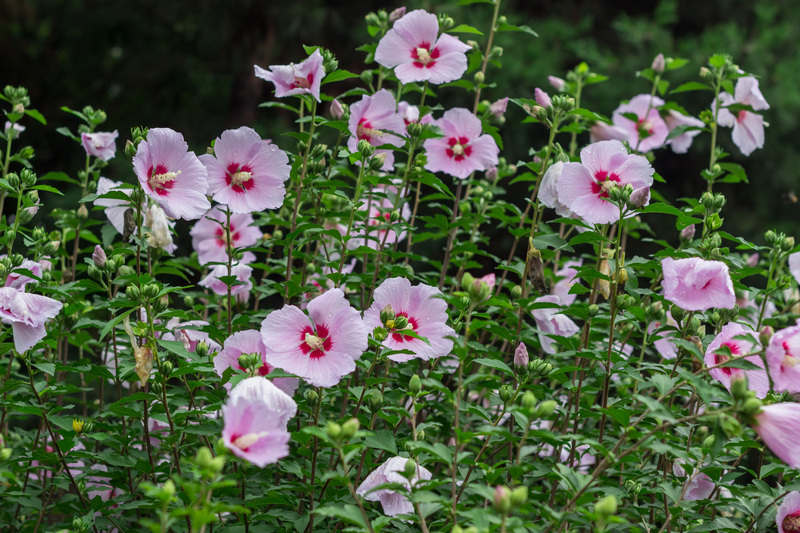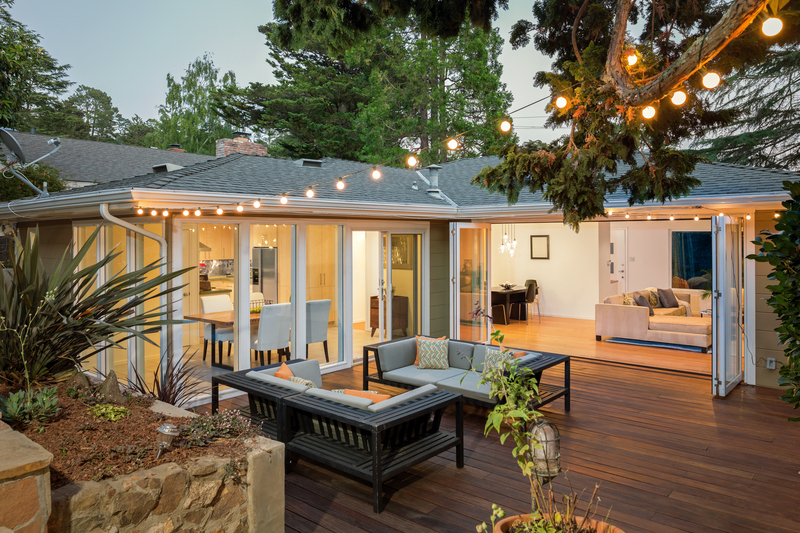Outdoor Serenity: Designing a Zen Garden Haven
Posted on 18/06/2025
Outdoor Serenity: Designing a Zen Garden Haven
When modern life feels overwhelming, our minds crave a place of stillness and tranquility. Imagine an outdoor space that offers peace, balance, and natural beauty--right within your own backyard. Designing a Zen garden haven provides a serene retreat that nurtures the soul and inspires mindfulness. In this comprehensive guide, we'll explore the timeless art of crafting your own Zen outdoor oasis, from design principles and plant choices to layout ideas and meditative features.

What Is a Zen Garden?
A Zen garden, or karesansui in Japanese, is a traditional landscape concept that originated in medieval Japan. These gardens use minimalist design and natural elements to evoke a sense of tranquility and contemplation. Unlike traditional gardens full of blooms, a Zen garden emphasizes simplicity, asymmetry, and symbolism.
- Gravel or sand symbolizes water or space
- Rocks and boulders represent mountains or islands
- Moss and minimal plants add subtle life and color
- Bridges, lanterns, and statues convey cultural meaning and focus
The aim is not flashy display, but a gentle mastery of balance and perspective. By designing a Zen haven in your own backyard, you cultivate an outdoor serenity that soothes stress and rejuvenates the spirit.
Why Choose a Zen Garden for Outdoor Serenity?
Zen gardens are gaining immense popularity among homeowners for several reasons:
- Low Maintenance: A Zen-inspired landscape generally requires minimal upkeep compared to traditional flower beds or lawns.
- Timeless Aesthetic: The minimalist and harmonious approach outlasts fleeting design trends.
- Mental Wellness: The calm atmosphere promotes mindfulness, meditation, and mental wellness.
- Space Flexibility: Zen gardens can be adapted to fit any size outdoor area, from a compact patio to an expansive yard.
Designing an outdoor Zen haven is more than landscaping--it's a personal journey toward creating daily calm.
Key Elements of a Zen Garden Haven
To successfully design a Zen garden retreat, you must understand the philosophical and visual components that define this iconic style. Here's how to integrate essential Zen elements for true outdoor serenity:
1. Sand or Gravel "Seas"
Dry landscapes, or "kare-sansui," are the most iconic element in Zen garden design. Fine, pale gravel or raked white sand often represents water, infinity, or the void. The act of raking patterns is meditative and ever-changing, emphasizing impermanence.
2. Carefully Placed Rocks
Rocks are vital in Japanese Zen gardens, symbolizing mountains, islands, or even animals. Their arrangement is never random; it's based on principles of asymmetry and natural order. Choose natural stones of various sizes and subtly group them in odd numbers for balance--such as three or five.
3. Limited, Thoughtful Plantings
Zen outdoor havens often limit greenery, channeling energy into a few choice plants. Moss, Japanese maple, azaleas, and dwarf conifers are favorites for texture and color without clutter. Use subtle, harmonious hues, avoiding bright, distracting flowers.
4. Water Features
Flowing water offers soothing sounds and serves as a symbol of renewal. Include a simple stone basin, bamboo fountain, or small pond for a gentle auditory backdrop. In dry gardens, water can be suggested using sand patterns or river stones.
5. Bridges, Lanterns, and Statues
Garden features like arched wooden bridges, stone lanterns, and meditative statues (such as Buddha or pagodas) bring cultural significance and focal points to the landscape. Use these sparingly to maintain simplicity and purpose.
Planning Your Zen Garden Layout
Every outdoor Zen haven is unique; however, thoughtful planning is essential for achieving serenity. Consider these steps:
Assess Your Space
- Measure your area: Determine whether you want to create a full garden transformation or a small meditation corner.
- Analyze light and shade: Orient your garden for morning sun, filtered shade, or dappled lighting as preferred.
- Evaluate drainage and soil: Proper drainage prevents issues with moss, gravel, and stone stability.
Sketch Your Vision
- Draw a rough plan showing main elements: gravel areas, rock placements, plant beds, and water features.
- Use curves and asymmetry over straight lines for a more organic, calming effect.
- Add focal points such as a lantern, statue, or graceful bridge to direct the gaze.
Choosing Materials and Plants for Your Outdoor Zen Sanctuary
Essential Materials
- Fine gravel or sand for raked patterns
- Weathered natural stones in assorted sizes
- Bamboo, cedar, or hardwood for fences, bridges, or benches
- Stone lanterns or basins for authenticity
Ideal Plant Choices
- Moss: Softens stone and prefers moist, shady corners.
- Japanese maple (Acer palmatum): Offers graceful structure and brilliant fall color.
- Dwarf conifers and pines: Symbolize permanence and longevity.
- Azaleas and rhododendrons: Provide seasonal color with subtle blooms.
- Bamboo: Adds texture and creates natural screens.
- Fern, Hakone grass, or mondo grass: Contribute softness and movement.
Select plants for foliage interest and seasonal changes. Limit your palette for cohesion and fall back on green, silver, and muted colors for true Zen harmony.
DIY Tips for a Peaceful Zen Outdoor Haven
Ready to bring serenity to your backyard? Here's how to create a Zen outdoor sanctuary step by step:
- Clear and level the site. Remove grass, weeds, and debris. Level the ground and add landscape fabric to prevent weed growth.
- Frame the garden area. Use wooden borders, natural stone edging, or low bamboo fencing for definition.
- Lay the gravel or sand. Spread an even layer (2-4 inches) and rake the surface into gentle patterns.
- Place your stones. Arrange rocks in balanced, organic groups--avoid symmetry and straight lines for natural beauty.
- Plant thoughtfully. Install plants in pockets near rocks or edges, leaving ample negative space.
- Integrate water features or ornaments. Add a stone basin, bamboo fountain, or subtle statue for interest.
- Create a sitting or meditation spot. Position a simple bench, flat stone, or zafu cushion for relaxation.
Remember, the goal is not perfection, but a mindful, personal connection to your outdoor space. Let your Zen retreat evolve with the seasons and your own inner growth.
Maintaining Your Zen Peaceful Garden
The beauty of Zen garden design lies in its subtlety and ease. Maintenance is minimal, but a few routine habits will keep your haven serene:
- Rake gravel regularly to refresh patterns and clear fallen debris.
- Trim moss and shrubs to preserve tidy lines.
- Remove weeds promptly to maintain simplicity.
- Clean water features as needed for clear flow and serenity.
- Refresh mulch or sand every year to keep textures bright.
View maintenance as an active meditation: each small act is a step on your path to outdoor serenity.
Enhancing the Zen Experience: Mindfulness in Your Garden
A Zen garden is designed for more than just beauty. It's an invitation to slow down, observe, and immerse yourself in the present moment. Here are ways to deepen the serenity of your outdoor Zen haven:
- Practice mindful walking along garden paths, focusing on each step and breath.
- Meditate on a bench or stone at sunrise, immersing in the sight, sound, and scent of nature.
- Rake sand or gravel as a meditative ritual whenever you need clarity or calm.
- Host tea ceremonies or yoga sessions surrounded by the stillness of your Zen landscape.
Outdoor Serenity: Zen Garden Trends and Ideas
If you're seeking inspiration, look to these modern Zen garden trends and creative twists:
- Mini Zen gardens for balconies or urban patios--perfect for small-space serenity.
- Contemporary Zen designs incorporating steel, glass, and geometric elements.
- Zen patio corners with container bamboo and portable lanterns.
- Japanese-inspired pathways using stepping stones and moss borders.
- Wild Zen gardens blending native, drought-tolerant plants with traditional features.
Whatever style you choose, prioritize simplicity, subtlety, and a deep connection to nature.

Frequently Asked Questions: Zen Outdoor Havens
Can you design a Zen garden in a small space?
Absolutely! Balcony, patio, or even a courtyard corner can be transformed into a mini Zen retreat using a small sand bed, rocks, and potted plants.
Do Zen gardens require special maintenance?
Not at all. Zen landscapes are typically low-maintenance with periodic raking, weeding, and simple plant care.
What plants are best for shaded Zen gardens?
Moss, fern, hosta, and Japanese forest grass will thrive in lower light, bringing lush serenity to shaded Zen spots.
Is water necessary in a Zen garden?
While not required, a small water feature (real or suggested by raked gravel) enhances tranquility and authenticity.
Conclusion: Embrace Outdoor Serenity with a Zen Garden Haven
Creating a Zen garden haven transforms your outdoor space into a sanctuary of mindful beauty. By embracing minimalist design, natural materials, and harmonious plants, you invite tranquility and clarity into your daily life. Whether your garden is large or small, modern or traditional, the principles of Zen will guide you toward lasting serenity. As you rake gravel, tend moss, and meditate in the gentle embrace of nature, your Zen retreat becomes a living symbol of peace--right at your doorstep.
Start your journey toward outdoor serenity today and experience the profound benefits of your own Zen garden haven.
Latest Posts
Architectural Elegance in Vertical Gardening
Igniting Your Passion for Home Herb Cultivation
Create an Enviable Garden Without the Hassle
Building a Thriving Orchid Collection
The role of biodiversity in gardens to address climate change

